Discover the creative mind and journey behind Red Ted Art, a beloved crafting blog that has captured the hearts of parents and children alike. Inthi ...
Niall Doherty’s Journey in Making Money Online with eBiz Facts
Written by: Howard Tillerman
Howard Tillerman is the Chief Marketing Officer for Step By Step Business and an award-winning marketing professional.
Published on December 15, 2023
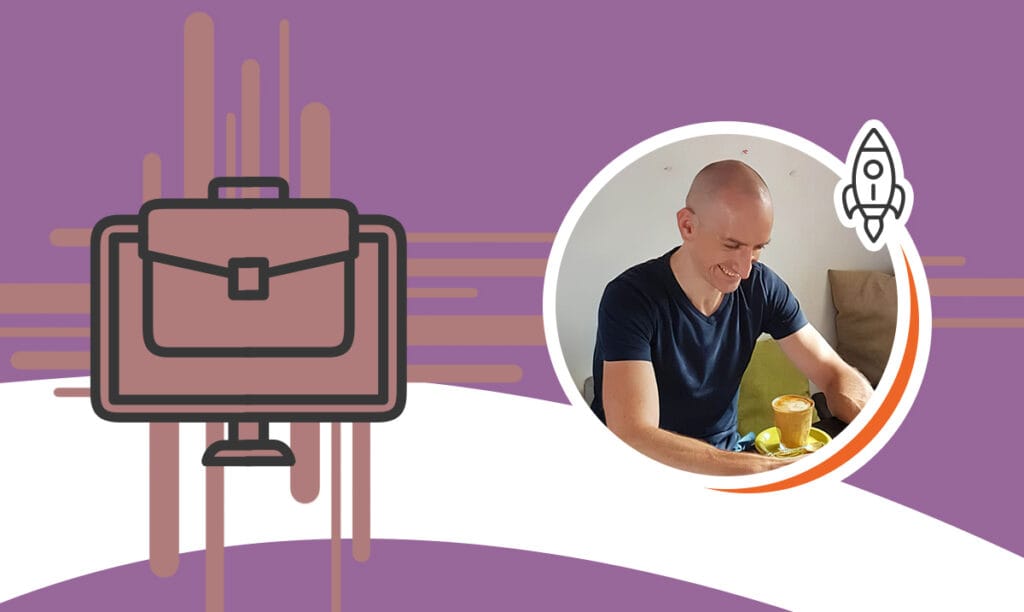
In this interview with Niall Doherty, founder of eBiz Facts, we delve into the motivations behind creating a platform dedicated to honest, scam-free advice on making money online. We explore his journey from multimedia and IT to online entrepreneurship, discussing the challenges he faced transitioning to self-employment and the strategies he used to develop a diverse skill set in writing, coaching, and online marketing.
Origins and Influences
SBS – How did you end up living in Andorra?
Niall – Originally, I’m from Ireland. My wife and I were working remotely, and we were looking for a place where we could settle down and call home. We just looked at a bunch of places, and Andorra ticked most of the boxes. We love the mountains. We already spoke a bit of Spanish and wanted to learn more. Taxes are good here, and there’s also a good Xpat community.
SBS – What motivated you to start eBiz Facts?
Niall – I’d worked online for seven or eight years, mostly as a freelance web developer. I had a course teaching people how to work online. That did okay, but it never did really well, so I was looking to try something different. A friend of mine had started a website writing really insightful content on a niche topic and then monetizing with affiliate marketing. He suggested that I do the same thing related to online finance, making money online, that kind of niche — because I’d always been interested in that and I’d taken lots of courses.
His website was doing so well that I was amazed that you could just research a topic, publish good insightful content, and then have affiliate offers in your content and make good money. I decided to try it out with the niche I was interested in.
I started doing keyword research and all the typical search engine optimization stuff and realized that reviewing these make-money-online courses was in demand. When I looked at people and websites doing it already, they were mainly just trying to tell you every course was good and get you to click on their affiliate link and make money off you. I thought they weren’t reviewing them honestly. They were just saying, “This is an amazing course. If you sign up for this, you’ll definitely make money. It’s really easy. You don’t have to put much work into it.”
I decided I could do that much better: review these courses in-depth, be very honest, do a lot of research, and put all the information out there for people — the things that I wish I had known before I signed up for a course. That’s what I started doing, and it started working.
It was a lot of work to create one piece of content, but I quickly saw that people were responding. People liked it. I got lots of traffic from Google, and people trusted my recommendations. So, I might review 10 courses, and I only recommend two of them in the end. People would take my recommendation and purchase those courses through my affiliate links. I was able to make some money that way.
I would put affiliate links to any course that would let me into their affiliate program. I’d have a list of the best courses I’ve reviewed, and naturally, those would get the most clicks. Surprisingly, even a course that I would review negatively, some people would buy through my affiliate link. Over time, I realized it’s a bit like when someone comes in to buy cigarettes, and there’s a warning on the cigarette saying, “These will kill you.”
Course Evaluation Process: Efficiency and Presentation
SBS – How long did it take you to evaluate those courses like that?
Niall – Initially, with the way I started off reviewing courses, it would often take me 20–30 hours (sometimes more) to review one course, create the content, and put it online. I would go into the course and go through lots of the content. Some of it I would skim, but other parts of it I would look deeper into. I would try to fact-check what they would say in the course to see if it made sense. Is this actually true?
I would end up with a Google Doc of 100, 150 pages of notes. Then, I would have to pick out the key points that I want to put in the review I would publish on my website. It took a lot of time. That’s how I stood out, though. I think that’s how you stand out when starting a business — you do the things that most people aren’t willing to do and that your competitors aren’t willing to do.
But it wasn’t scalable. So, over time, I reduced that process to its essence.
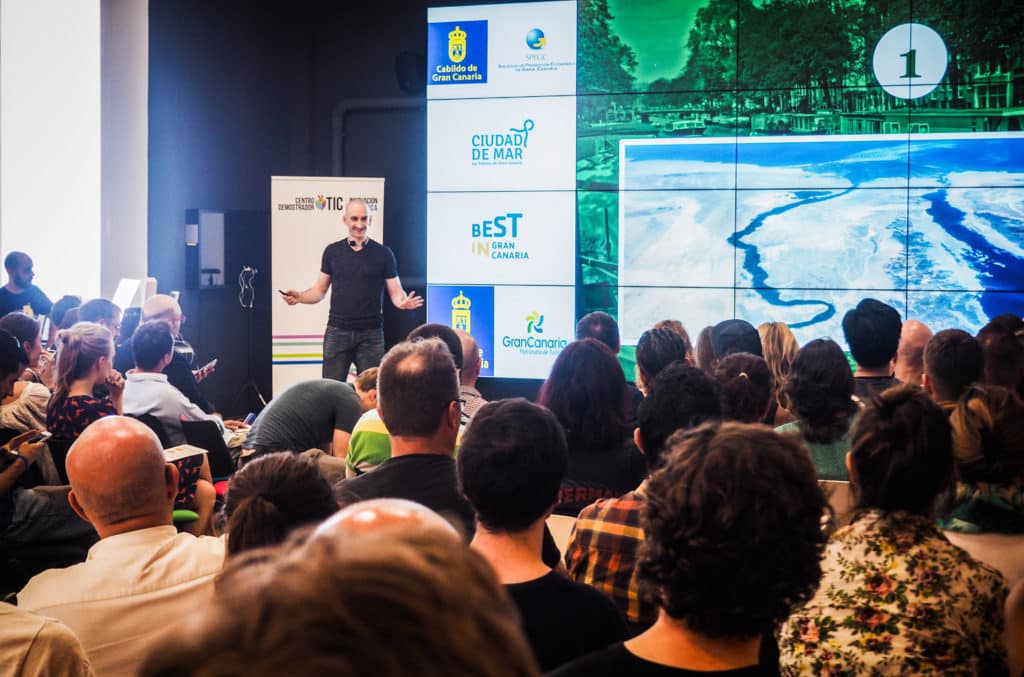
Transcontinental Business Formation
SBS – What business formation did you choose?
Niall – I’m not sure what I did is what most people should do. I was traveling around the world when I started this business, but I already had a US LLC. A few years previously, as a freelancer and when I was running my own course, I researched and figured that, because I’m not staying in any one place for very long, the US LLC seemed to be the best setup for me to have everything legal, but also still be traveling around and not be a permanent resident anywhere. You can do it in select states in the US. So, I did it through Wyoming.
SBS – Why do you think it was a good option for you to choose business formation in the US when you are living in Europe? What are the advantages of it?
Niall – I wasn’t necessarily living in Europe all the time then. I was spending some time in Spain. I would be in Asia and Southeast Asia parts of the time. I can’t remember the exact details, but from everything I researched, it seemed to offer the most flexibility and the most tax benefits. Even back then, on my website, most of my traffic came from the US. I thought it would be more trustworthy for the US audience if I had a US-registered business.
Entrepreneurial Challenges
SBS – What challenges did you face in those first stages when you formed a business?
Niall – The hardest things are figuring out how to earn money consistently, trying to figure out your business model, trying to figure out how you could best add value, and trying to find that sweet spot between how much work you put in, how much value you’re providing and how much value you’re able to extract in terms of revenue.
That took a while. I think it was several months before I earned enough from eBiz Facts to cover all my expenses. It was slow progress, but it was going up gradually. I could see the potential of it. I had examples of friends who were further along this path doing this same or similar business model and how it compounds and grows over time. So, I was quite confident that if I kept going and kept putting in the work I would be able to make a good income from it eventually.
Technological Background: Impact on Entrepreneurial Approach
SBS – How much do you believe your background in information technology influenced your approach as an entrepreneur? Did it make it easier? Or do you think it is a disadvantage since you are doing all the stuff alone?
Niall – It is both. It’s a gift and a curse. Especially early on in my business, I could do everything myself. I could build a website. I could do the research and the writing. I was already quite good at that. Graphic design: I knew how to use Photoshop. If I ran into some kind of user interface problem on the website, if something looked strange with my lists or whatever, I could troubleshoot it, and I usually didn’t need to hire somebody to help me.
On the downside, now that my business has gotten bigger and I’ve built a team, I’m often the bottleneck and slower to outsource things than I should be. I end up doing a lot of the little things on the website or in the business that I really shouldn’t be doing. I’m still caught in that mentality sometimes, thinking I could do that myself, and it’d only take five minutes. But then there’s a hundred things like that, and that’s your whole day or a whole week.
Autonomy vs. Delegation
SBS – Are you now in a position where you are aiming to get some help, or are you still going to do all of this for yourself?
Niall – I have a team of six contractors I work with regularly now. I have help in researching and writing the reviews and newsletter. We also survey students in these courses and get their reviews. I have help doing that, too. I have a developer I work with sometimes for some of the back-end programming that I’m not comfortable with. I also have a VA in the Philippines who helped me with various things.
I can still get too caught up in doing something myself. I’m getting better, but it’s hard to overcome your natural way of doing things. And for me, my natural way is to just try to do everything myself.
Travel Influences and Business Impact
SBS – Can you share some memorable travel experiences that may have impacted your business?
Niall – I last worked a real job in 2010, 13 years ago. I worked as a web developer for a university in the US. When I quit that job, my goal was to travel the world and figure out how to make money online, which I mainly did through freelancing. But one of my travel adventures was making a trip around the world without flying.
I spent three and a half years doing that, going through 30-something countries across the Pacific Ocean in a cargo ship. I went through the Middle East and got stuck in Iran for a while because my bank cards wouldn’t work there, so I had to figure that out.
There were a lot of adventures and misadventures along the way. I remember when I was freelancing, I was in Panama. I stayed in a hostel. I didn’t have a lot of money then. I was still figuring out how to freelance and earn money consistently. In the hostel, the internet connection wasn’t very good. So during the day, when everybody else was awake and using the internet, it was really, really slow. I couldn’t get any work done for a client. I had to stay up during the nights when nobody was using the internet, and I could work faster. I would work on client projects through the night and then sleep during the day, so I was on the opposite schedule. But it was one of those things where you just do what you have to do to deliver the client projects, get the work done, and earn the money so I can keep traveling.
Over the years, I’ve been able to earn more money, and I haven’t had those issues. I can stay in better places when I’m traveling. But now I very much like being in an apartment here in Andorra, having my nice home office and fast, reliable internet and a reliable setup. I don’t travel as much as I used to, but I can still, if I need to, just take my laptop and go to Ireland for Christmas to visit family. I can keep an eye on the business from my laptop.
I used to optimize for adventure. That was the travel lifestyle, arriving in a new city, not knowing anybody. I used to love that. Anything can happen. I don’t know where I’m staying tonight, but I’ll figure it out. Nowadays, I optimize more for productivity, especially as the business grows. I feel like the business’s potential is huge, so I want to ensure I maximize that.
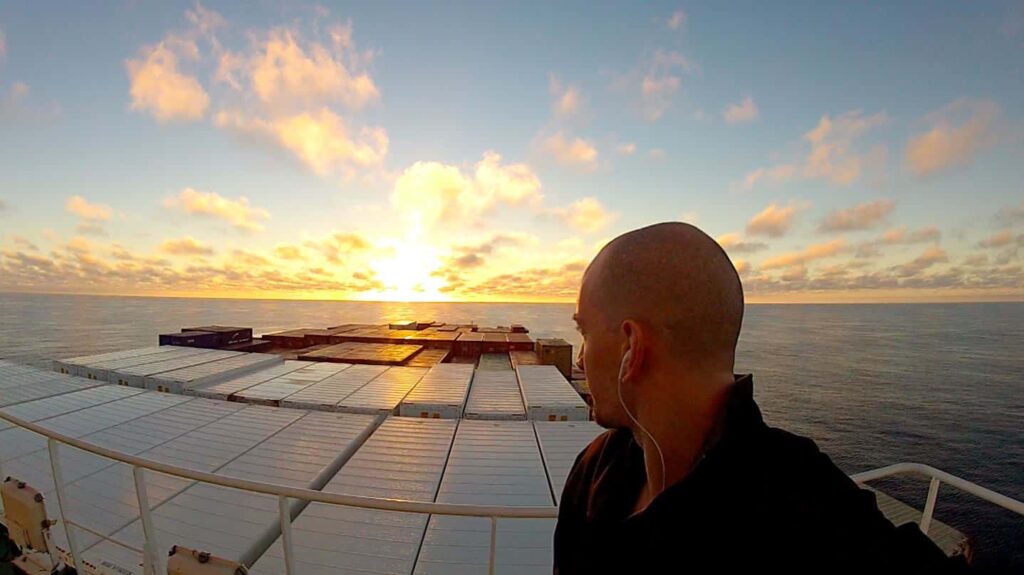
Financial Balancing Act
SBS – How do you balance finances, and what kind of advice would you give to future entrepreneurs about funding in the first stages of the business? If you could do it all over again, would you do something differently?
Niall – I’m quite conservative when it comes to finances. I don’t like being in debt. When I started eBiz Facts, I had a total of $15,000 in my bank account. It was bootstrapped. I only spent what I could afford to spend. If I had to buy a course to review it, I would go for the cheaper courses or maybe a course that was on a payment plan so I didn’t have to pay everything at once. That’s just how I did it.
I didn’t start spending a lot of money on the business until it was making good money. I still pretty much operate that way. The business makes a lot more money now, so I can invest more money into it. However, I am still very careful to have a big buffer, and I want to keep a lot of money in the business to cover expenses and payroll for the next few months.
Course Selection Criteria
SBS – How do you choose the courses or services you want to evaluate? What are some requirements?
Niall – The main thing is we want to review courses that people are searching for because we depend a lot on search traffic from Google. So, most of what we do is keyword research. We look at which courses people are searching for on Google. We look at competitor websites and see what courses they’ve reviewed, and then see if we want to review those courses and if there is much demand for that type of review.
Earlier, we were trying to expand a lot. Now, we’re trying to contract more and see if we can stop reviewing new courses and improve the existing course reviews because only so many courses are being searched for online. For a long time, we were constantly trying to find new courses to review, but now we’re finding that we’d be better off just reviewing less courses, but just reviewing them better, upgrading the content, keeping them up to date, making sure we answer every possible question about those few courses. It’s better than having lots of okay reviews.
Evolution of Content Strategy: Structural Changes
SBS – How did your content creation strategically change regarding structure and design from the beginning?
Niall – It has evolved a lot. Content creation is pretty much our entire business. We survive based on our content and if people find that valuable. We don’t have any products of our own. We’re referring people to other courses, and we make affiliate commissions. So, our product is our reviews, and we just want them to be as good as they can be.
When I started, it was just very bespoke, in-depth reviews. Every review was different. The headings would be different. That was version one of our reviews.
Then, we started incorporating student reviews because we realized none of our competitors were doing it. Ideally, if you wanted to read a review of a course, you would want to see lots of reviews from students who have been through that course, not just one person’s opinion. (even if that person is an expert or has researched the course). You’d want many different viewpoints and read through different experiences, just like when booking a hotel. We added that, and the students’ ratings factor into our overall rating. We developed a rating system for courses so we could be more consistent with how we compare them to each other.
We have an algorithm that takes into account different factors about a course. We came up with a template for our reviews as well, so it’d be more scalable. We came up with the exact things we look for when researching a course. We will check all those things and then write a review in this structure. When we had that figured out, that was the 2.0 version of our reviews. I could hire people to help me with the reviews and train them on our system, so it became more scalable.
We just started working on the 3.0 version of our reviews. It’s quite similar; it’s just doing everything a bit better and showing more of our rating system, which we tried to keep secret and hidden before because we were worried about competitors. But now it feels like we’re better off showing the reader how seriously we take this. There’s a lot more trust. So, the 3.0 version we’re working on now will be much more in-depth, and we’re going to try and condense everything so we’re doing even less courses.
Staying Tech-Savvy
SBS – How do you stay updated with the latest technology since everything changes rapidly, especially in the online business? Do you have some tactics, or are you just going with the flow?
Niall – It’s tough to keep up with everything. I do a newsletter twice a week where we profile different types of online businesses, how they’re making money, or what kind of marketing they’re doing. That forces me to keep up with a lot of different things that are happening. I see a lot of different ways people are using AI, for example, or different ways they might be using social media or video. So that helps.
I’m also just playing around with some AI stuff. I’m usually not a first adopter. I usually wait to see if it is just hype or if it is going to be useful. I recently started using it in my daily workflow to write code and that sort of thing. So, I’m a bit slower than most. I like to see that something is well-established and has been tried and tested before I jump into it.
Misconceptions About Online Income
SBS – What are some misconceptions about making money online?
Niall – Well, a big one that we come across a lot is just the get-rich-quick stuff. Many people just want to believe, “If I just find that one trick or that one hack, then I will be able to make money easily online.” We review many courses that play into that with their marketing and say it will only take an hour a week. I’ve never found any of those promises to hold up. That never has turned out to be true from all those courses we’ve investigated.
The real businesses you see out there making money took a lot of work. If someone does find a hack or a trick and gets lucky like that, those businesses might make some money quickly, but they won’t last very long because everybody else will figure out what’s going on and will do the same thing. If you want to build a long-term sustainable business, there are no shortcuts. I mean, there are things you can do to be more efficient and more productive, but it still takes a lot of hard work. It takes sacrifice, and there’s no way around that.
Lessons Learned: Reflections on Business Beginnings
SBS – Would you do something differently now if you were starting a business?
Niall – I think the biggest thing is I tried to do too many things along the way. It’s interesting. You think that, when a business is starting, it’s quite small and focused. Then, as it becomes more successful, it gets broader, and you go into different markets and create different products.
I found it’s usually the opposite. When you start, you have all these ideas, and you’re not sure which one will work, and you’re trying to do way too many things at the same time. As you get more experience in business, you end up focusing more and more on the one thing that will make a difference and make money.
I got distracted way too many times. For my business, we used to have a private community that we would charge access to. I used to do a lot of different types of content. We used to do interviews, case studies, and all these other things. As time has gone on, we’ve realized that if we try and do all these things at the same time, we don’t do any of them very well.
So, we’ve just constantly been stripping away parts of the business that aren’t as valuable, aren’t making us as much money, aren’t giving us a return on investment, and are becoming more and more focused on the things that make a difference.
Subscribe to Our Newsletter
and gain insider access to cutting-edge business insights and trends.
Featured Resources
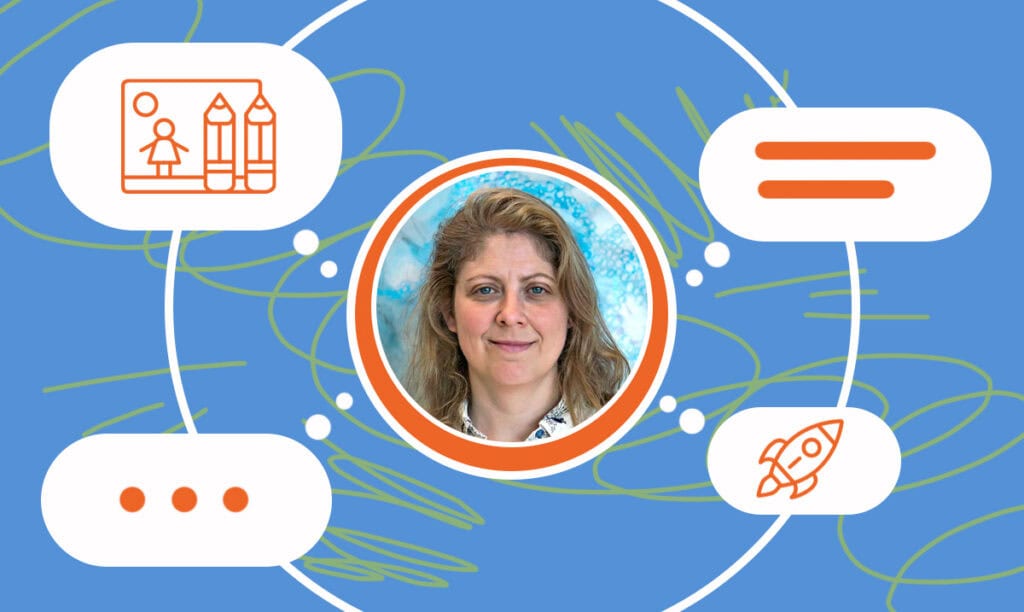
How Red Ted Art Became a Crafting Sensation for Parents and Kids
Published on July 19, 2024
Read Now

How a Financial Struggle Led to Ling’s Blogging Success
Published on March 6, 2024
Join us for an interview with Ling Thich, the creative force behind FinSavvy Panda, a blog where finance meets inspiration. In this conversation,Lin ...
Read Now
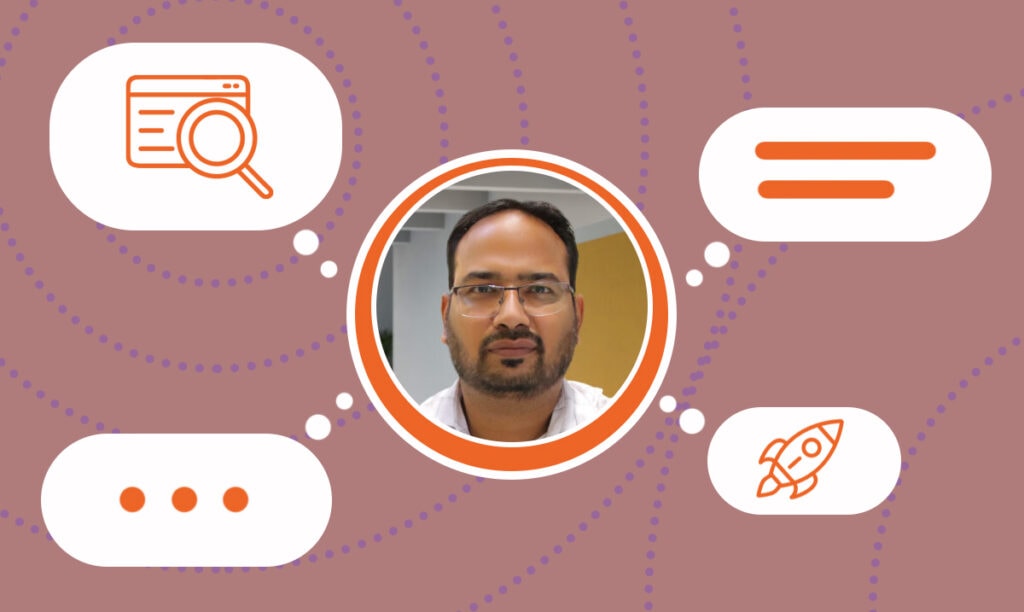
Anil Agarwal Reveals Keys to Blogging and SEO Success
Published on February 28, 2024
In today’s digital landscape, the role of blogging and SEO has become paramount for anyone looking to make a mark online. To delve deeper into ...
Read Now
Comments